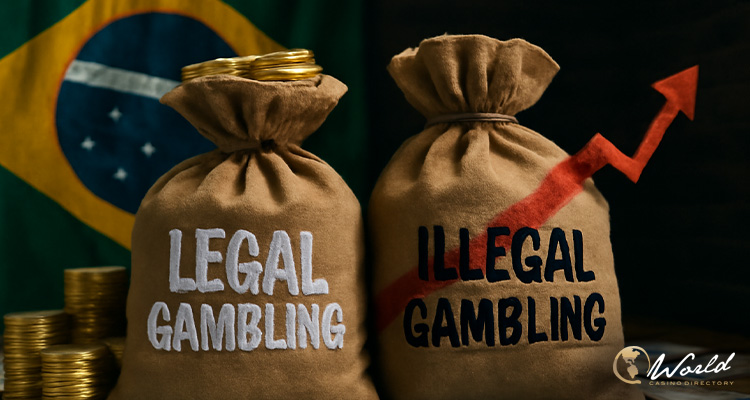As Brazil’s government considers tax reforms to offset potential fiscal shortfalls, leaders from the country’s licensed betting industry have issued a strong collective warning: raising taxes on regulated operators could devastate the legal market and unintentionally revive illegal gambling operations.
Six of the largest gambling and betting associations in Brazil, including the Brazilian Institute of Responsible Gaming (IBJR), the National Association of Games and Lotteries (ANJL), and the Brazilian Institute of Legal Gambling (IJL), have jointly voiced their opposition to the government’s consideration of a tax increase on the licensed betting industry. The concern follows speculation that authorities may hike taxes on this sector to compensate for potential revenue losses if Decree No. 12,466—an executive order that raised the IOF tax on international remittances from 0.38% to 3.5%—is repealed.
In a joint statement released on June 3, the associations described such a move as “unjustifiable from any technical, economic or public policy perspective,” emphasizing that the legal framework introduced under Law No. 14,790/2023 is still in the early stages of implementation and should not be undermined.
A Heavily Taxed Sector Nearing Its Limits
The statement underscores that Brazil’s betting sector is already taxed at one of the highest levels globally. Licensed operators currently face a cumulative tax burden that includes a 12% gaming tax, 9.25% PIS/COFINS, up to 5% ISS (municipal tax), and a 34% corporate profit tax composed of 25% IRPJ and 9% CSLL. Furthermore, regulatory fees can amount to as much as R$2 million per operator monthly.
On top of this already complex and costly system, Brazil is undergoing a tax regime transition that could add another 13% to gross revenue through the replacement of PIS/COFINS and ISS with the CBS and IBS tax models. A newly approved Selective Tax—commonly referred to as a “sin tax”—is also pending a defined rate, which could push the sector’s total tax burden close to 50%.
With 79 operators licensed and over R$2.4 billion invested in entry fees alone, the betting industry has already made substantial commitments to the country. Its projected contributions to public coffers exceed R$4 billion in 2025, directed toward key sectors such as health, education, public safety, sports, and social security.
Legal Viability and Market Stability at Risk
Industry leaders caution that additional taxes could render the business model unfeasible, prompting licensed operators to withdraw from the Brazilian market. “This disruption may result in litigation and systemic impacts, driving away investments and generating instability,” the joint statement reads.
The risk of unintended consequences extends beyond industry exits. International examples from countries like Italy and Spain reveal that over-taxation in newly regulated environments can inadvertently empower illegal gambling platforms. In Brazil, this dynamic is already observable: while the legal market generated around R$3.1 billion per month in early 2025, the unregulated market is estimated to have moved between R$6.5 billion and R$7 billion—completely outside the oversight of authorities.
Trade organizations argue that efforts to patch short-term fiscal gaps should not jeopardize a sector that is still stabilizing under new regulatory norms. “Compensating for temporary tax losses by disproportionately increasing the burden on a sector that is still undergoing regulatory consolidation compromises the very objective of public policy: channeling consumers to a safe, legal, monitored and socially responsible environment,” they emphasized.
A Call for Sustainable Economic Solutions
The gambling associations maintain that more sustainable solutions should be prioritized to improve public finances. These include structural reforms, more efficient public spending, and formalizing sectors of the digital economy that currently remain outside the regulatory perimeter.
“Efficient taxation should not be confused with confiscation,” the associations stated, rejecting any narrative that paints the regulated betting industry as responsible for Brazil’s broader fiscal challenges.
Legal experts echo the sector’s concerns. João Rafael Gandara, a tax specialist at Pinheiro Neto Advogados, explained that the government may be attempting to recover the estimated R$20 billion in IOF-related revenue through increased gambling taxes. However, such a strategy risks destabilizing a promising industry that has only recently been brought under formal regulation.
The Road Ahead: Industry Dialogue and Legislative Watch
While tensions rise over potential tax changes, the betting sector has reaffirmed its commitment to ongoing dialogue with government institutions. Nevertheless, stakeholders remain adamant that targeting this industry for fiscal fixes undermines the long-term goals of regulation, consumer protection, and national revenue enhancement.
In the coming weeks, further developments are expected as Brazil’s Federal Senate awaits the findings of the CPI of Bets (Commission of Inquiry into Betting), a report that could play a pivotal role in shaping future gambling policy.



